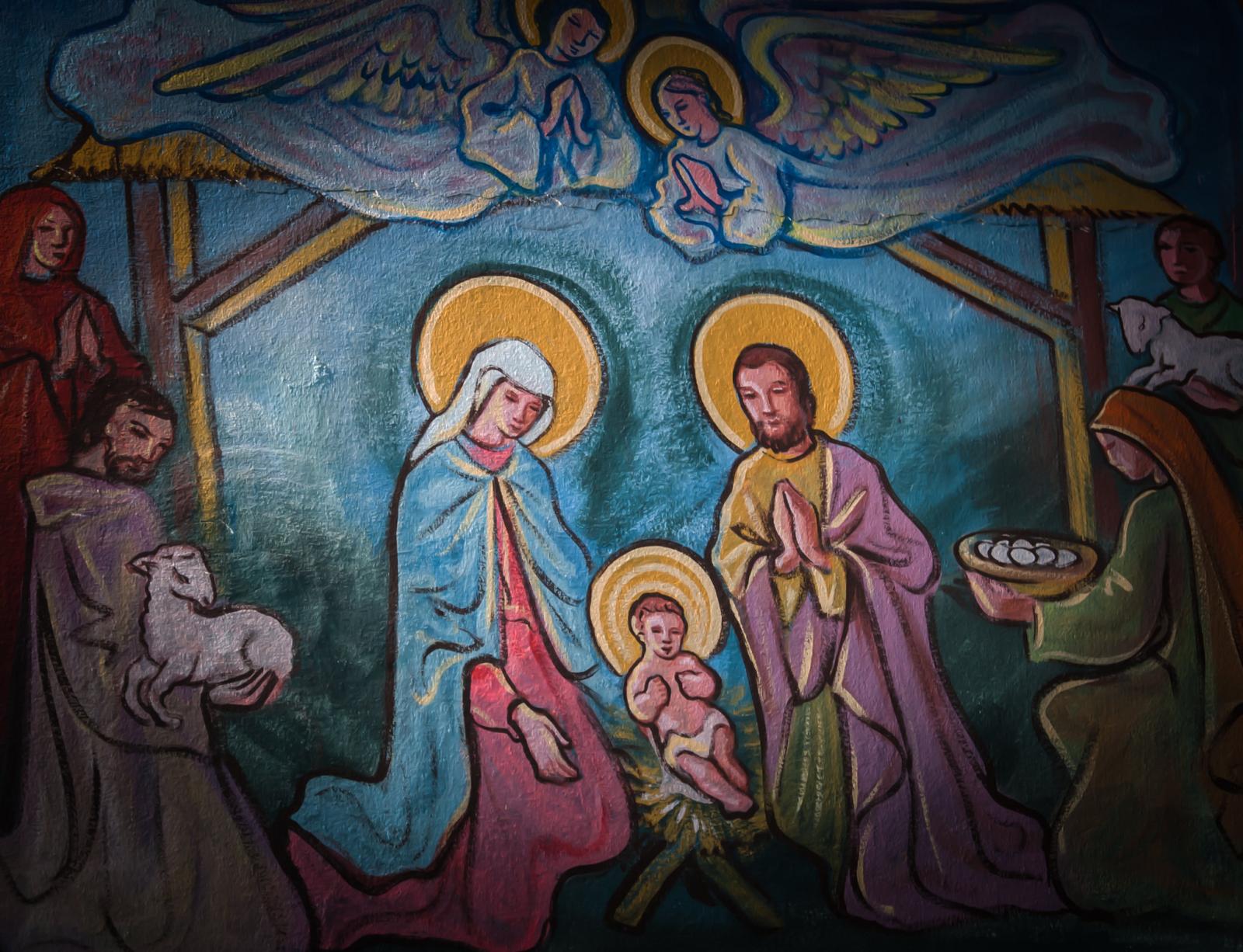By Deacon Roger Carr-Jones, Marriage & Family Life Coordinator for the Diocese of Westminster
The Holy Family have arrived and are already settled in. Now, after all the hustle and bustle of the journey, we too are making our way to him. Hurry!
Our Advent calendar, in whatever form, has enabled us to mark the days on the journey towards the crib and helped us to reflect on life and the purpose of the journey. The season of Advent anticipates the coming of Christ in three forms: the physical nativity in Bethlehem; the reception of Christ into the heart of the believer; and the Second Coming of Our Lord. The prudent pilgrim begins with the first, ponders the second, and leaves the third to God. It is good to take a moment to notice and give thanks for the shafts of light that helped us along our journey.
At the heart of the Advent calendar lies the nativity scene: it marks both a moment of arrival and new departure, as once again we contemplate the mystery of the Incarnation. In his book, The Mystery of the Incarnation, Basil Hume wrote these encouraging words, 'God does not see or looks at crowds. He sees and looks only at individuals.' Every year we are invited to cross the threshold, find a place to sit in the manger and to discover that we are welcomed as we are. It is also the opportunity to be set free of unwanted baggage and discover new insights before returning to tread the Way.
When we come to the crib we bring the calendar of our life, opening it up before the Christ-child. As we gaze at him, he is gazing back at us. The natural response might be to want to close those windows that we are less happy about. Instead, just allow his gaze, which sees our life as a whole, to transform and heal us from within. Allowing the light to pour through us changes everything. 'Incarnational spirituality means believing that God can be found in the everyday events of our lives. God is not just out there. God is right here, too. If you’re looking for God, look around' (James Martin SJ, The Jesuit Guide to (Almost) Everything, p. 8).
Although the shadows of the pandemic are passing, the landscape remains uncertain: there is economic hardship, increasing poverty (financial, spiritual and moral) and the fear of conflict. Jesus, though, is born in a country under military occupation, with elites fighting for power, people displaced by the Census and the ambivalent actions of the religious authorities. Into the messiness of human existence 'the Word became flesh and lived among us' (Jn 1:14). As Pope Francis said, 'Jesus didn’t save us with an idea. He humbled himself and became a man. The Word became Flesh.' (2013)
Gazing on the light of the nativity scene draws us in. Allow the sights, sounds, smells, tastes and feelings to wash over us. Observe the simplicity and starkness of his birth place. If he was to be born in our day, it would most likely be in those places we might prefer to avoid: poor housing stock, a migrant camp, or a refugee centre.
As we allow the Divine persons to gaze at us from the manger, we, in turn, are invited to gaze at our world with all its complexities: the good and the bad. What windows need opening in our lives, so that we are fully alive, able to see and hear?
We are invited to hold the baby Jesus and in turn to hold each other. 'The Incarnation of Jesus has radical consequences in how one lives the Christian life; the love of Jesus who chose to be human in solidarity with sinful and broken humanity impels Christians to do the same' (Kevin Centeno SJ, The Scandal of the Incarnation).
As we go out and about this Christmas, it might help to rest in the following words by Anthony DeMello SJ and develop to the full our awareness of the Incarnation:
'We forget all too easily that one of the big lessons of the Incarnation is that God is found in the ordinary. You wish to see God? Look at the face of the man next to you. You want to hear him? Listen to the cry of a baby, the loud laughter at a party, the wind rustling in the trees. You want to feel him? Stretch your hand out and hold someone. Or touch the chair you are sitting on … Or just quiet yourself, become aware of the sensations in your body, sense his almighty power at work in you and feel how near he is to you. Emmanuel, God-with-us' (Sadhana).
